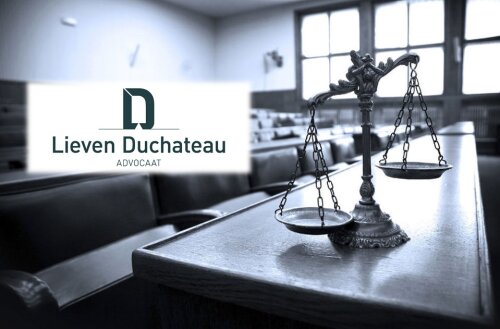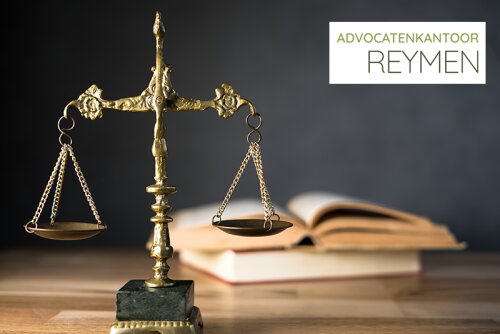Best Renewable & Alternative Energy Lawyers in Sint-Truiden
Share your needs with us, get contacted by law firms.
Free. Takes 2 min.
List of the best lawyers in Sint-Truiden, Belgium
About Renewable & Alternative Energy Law in Sint-Truiden, Belgium
Sint-Truiden, located in the Limburg province of Belgium, is actively engaged in supporting the transition to renewable and alternative energy sources. Belgium as a whole aims to reduce its dependency on fossil fuels and meet European Union climate goals. Renewable and alternative energy law covers legal frameworks, regulations, and policies that govern the production, installation, distribution, and use of energy sources such as solar, wind, biomass, and hydro in Sint-Truiden. Laws in this area regulate everything from subsidies and permits to environmental impact assessments and grid connections, ensuring that both individuals and companies comply with national and regional standards.
Why You May Need a Lawyer
Dealing with renewable and alternative energy projects often involves navigating complex regulations, administrative procedures, and contractual obligations. In Sint-Truiden, you may need a legal expert for several reasons, including:
- Applying for permits to install solar panels or wind turbines on your property
- Understanding eligibility for government incentives or subsidies
- Handling disputes with energy providers or local authorities
- Drafting or reviewing contracts for energy supply, leasing land, or equipment purchase
- Ensuring compliance with building codes and environmental regulations
- Managing community renewable energy projects
- Resolving issues related to grid connectivity and feed-in tariffs
- Protecting intellectual property for innovative energy solutions
A specialized lawyer can help minimize risks, secure your investments, and streamline the legal process.
Local Laws Overview
Renewable and alternative energy in Sint-Truiden is shaped by a combination of local, Flemish (regional), and federal Belgian laws. The Flemish government sets most energy policies affecting Sint-Truiden. Key aspects include:
- Permit Requirements: Installing renewable energy systems often requires municipal permits, especially for larger projects or those affecting public spaces.
- Subsidies and Incentives: Vlaanderen (Flanders) offers financial incentives for renewable energy installations, such as solar panel grants and support for energy cooperatives.
- Feed-in Tariffs: Regulations determine the rates at which you can sell surplus electricity generated by your installation back to the utility grid.
- Environmental Impact Assessments: Large-scale projects may require environmental studies to ensure minimal ecological disruption.
- Net Metering and Grid Access: Laws specify conditions for connecting renewable installations to the regional or national electricity grid.
- Energy Performance Standards: Buildings may need to meet energy performance requirements, especially in new construction or major renovations.
Local authorities in Sint-Truiden implement these laws, often providing additional guidance or requirements based on city development plans or environmental goals.
Frequently Asked Questions
What types of renewable energy are commonly used in Sint-Truiden?
Solar and wind power are the most widely used, with some interest in biomass and small-scale hydroelectric solutions.
Do I need a permit to install solar panels on my home in Sint-Truiden?
Small installations on residential rooftops typically do not require a permit, but exceptions exist for protected buildings or larger systems. Always check with the local municipality.
Are there subsidies available for investing in renewable energy?
Yes, there are regional subsidies and tax incentives for individuals and businesses investing in renewable energy installations.
How can I connect my renewable energy system to the grid?
You will need to comply with technical and legal requirements, submit an application, and coordinate with the local grid operator, Fluvius.
Who is responsible for maintaining solar panels after installation?
Maintenance is typically the responsibility of the property owner unless otherwise specified in a lease or service contract.
Can I sell surplus electricity generated by my solar panels?
Yes, under certain conditions, you can sell surplus power back to the grid through feed-in tariffs or net metering.
What regulations apply to wind turbine installations?
Wind turbine projects are subject to spatial planning laws, environmental impact assessments, and building regulations. Larger projects require more extensive permits.
What should I do if my renewable energy application is denied?
You can appeal the decision through administrative procedures and may seek legal assistance to strengthen your case.
Are community energy projects allowed in Sint-Truiden?
Yes, energy cooperatives and community projects are encouraged, often receiving support from local and regional authorities.
Do building energy performance standards apply to existing homes?
While most requirements target new buildings or major renovations, there are minimum standards and incentives to improve existing energy performance.
Additional Resources
If you require more information or support regarding renewable and alternative energy in Sint-Truiden, consider reaching out to the following resources:
- City of Sint-Truiden Environmental Department: Local guidance on permit applications and city-specific initiatives
- Vlaanderen Energy and Climate Agency (VEKA): Regional authority for energy policy, subsidies, and strategies in Flanders
- Fluvius: The regional grid operator handling electricity connections and technical regulations
- Belgium Federal Public Service for Economy: National regulations and broader energy policies
- Bond Beter Leefmilieu: Non-governmental organization promoting sustainable energy practices
- Local law firms: Many law firms specialize in environmental and energy law, offering consultations and representation
Next Steps
If you need legal assistance in the field of renewable and alternative energy in Sint-Truiden, start by gathering all relevant documentation regarding your project or issue. Identify the specific legal questions or challenges you face. Contact the appropriate municipal or regional authority for preliminary guidance. Next, consult a specialized lawyer experienced in energy and environmental law to discuss your situation and explore your options. Your lawyer can help clarify legal requirements, assist with paperwork, represent you in discussions with authorities, and advocate on your behalf if disputes arise. Being proactive and well-informed will help ensure your project complies with the law and benefits from available support systems in Sint-Truiden.
Lawzana helps you find the best lawyers and law firms in Sint-Truiden through a curated and pre-screened list of qualified legal professionals. Our platform offers rankings and detailed profiles of attorneys and law firms, allowing you to compare based on practice areas, including Renewable & Alternative Energy, experience, and client feedback.
Each profile includes a description of the firm's areas of practice, client reviews, team members and partners, year of establishment, spoken languages, office locations, contact information, social media presence, and any published articles or resources. Most firms on our platform speak English and are experienced in both local and international legal matters.
Get a quote from top-rated law firms in Sint-Truiden, Belgium — quickly, securely, and without unnecessary hassle.
Disclaimer:
The information provided on this page is for general informational purposes only and does not constitute legal advice. While we strive to ensure the accuracy and relevance of the content, legal information may change over time, and interpretations of the law can vary. You should always consult with a qualified legal professional for advice specific to your situation.
We disclaim all liability for actions taken or not taken based on the content of this page. If you believe any information is incorrect or outdated, please contact us, and we will review and update it where appropriate.










